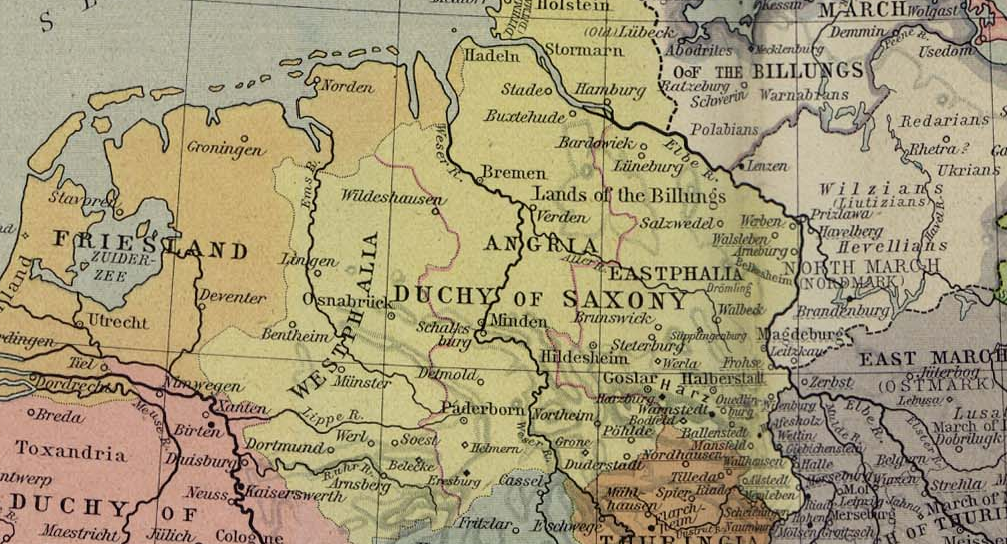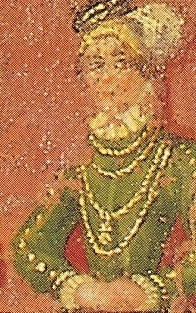|
Belzig
Bad Belzig (), until 2010 Belzig, is a historic town in Brandenburg, Germany located about southwest of Berlin. It is the capital of the Potsdam-Mittelmark district. Geography Bad Belzig is located within the Fläming hill range and in the centre of the High Fläming Nature Park. The plains north of the town are home to one of the few great bustard populations in Germany. Since 2003, when 14 surrounding villages were incorporated into Bad Belzig, some of them voluntarily, others by Brandenburg Landtag (state parliament) legislation, Bad Belzig has an area of 234.83 km². These villages became districts (''Ortsteile'') of Belzig: The forest of Verlorenwasser near Werbig encompassed the geographical centre of East Germany. History A Slavic peoples, Slavic fort of ''Belizi'' was first mentioned in a 997 deed issued by Otto III, Holy Roman Emperor, Emperor Otto III in favour of the Archbishopric of Magdeburg. Whether this denotation refers to Bad Belzig or the neighbouring t ... [...More Info...] [...Related Items...] OR: [Wikipedia] [Google] [Baidu] |
High Fläming Nature Park
High Fläming Nature Park () is an 827 km2 nature park in Potsdam-Mittelmark district in the German state Brandenburg. It is the third largest of 11 nature parks in the state of Brandenburg. In 1997, it was declared a nature park by the State Minister for the Environment. There is a visitor center in Rabenstein/Fläming offering information, an interesting exhibition, a bike rental and a shop with regional products. Geography The park is located about 80 km southwest of Berlin and Potsdam and covers the higher parts of the Fläming hill chain. The highest elevation is the Hagelberg (200,24 m). In the southwest, the region borders the Fläming Nature Park in the state of Saxony-Anhalt. Bad Belzig is the largest and most important town in the region, which is home to around 27.000 inhabitants overall. Other towns include Wiesenburg/Mark, Görzke, Niemegk and Brück. The population density is 30 inhabitants per km2. About half of the area is forests, the other ha ... [...More Info...] [...Related Items...] OR: [Wikipedia] [Google] [Baidu] |
Potsdam-Mittelmark
Potsdam-Mittelmark is a ''Kreis'' (district) in the western part of Brandenburg, Germany. Its neighbouring administrative units are (clockwise from the north) the district of Havelland (district), Havelland, the free cities of Brandenburg (town), Brandenburg and Potsdam, the state of Berlin, the district of Teltow-Fläming, and the districts of Wittenberg (district), Wittenberg, Anhalt-Bitterfeld and Jerichower Land in Saxony-Anhalt. Geography The district includes the southern banks of the Havel river and the northern parts of the Fläming (a wooded hill chain). There are three nature parks in the district: High Fläming Nature Park, Nuthe-Nieplitz Nature Park and Westhavelland Nature Park. History The district was created in 1993 by merging the previous districts of Belzig, Brandenburg-Land and Potsdam-Land. Demography File:Bevölkerungsentwicklung Landkreis Potsdam-Mittelmark.pdf, Development of Population since 1875 within the Current Boundaries (Blue Line: Population; Dot ... [...More Info...] [...Related Items...] OR: [Wikipedia] [Google] [Baidu] |
Brandenburg
Brandenburg, officially the State of Brandenburg, is a States of Germany, state in northeastern Germany. Brandenburg borders Poland and the states of Berlin, Mecklenburg-Vorpommern, Lower Saxony, Saxony-Anhalt, and Saxony. It is the List of German states by area, fifth-largest German state by area and the List of German states by population, tenth-most populous, with 2.5 million residents. Potsdam is the state capital and largest city. Other major towns are Cottbus, Brandenburg an der Havel and Frankfurt (Oder). Brandenburg surrounds the national capital and city-state of Berlin. Together they form the Berlin/Brandenburg Metropolitan Region, the third-largest Metropolitan regions in Germany, metropolitan area in Germany. There was Fusion of Berlin and Brandenburg#1996 fusion attempt, an unsuccessful attempt to unify both states in 1996, however the states still cooperate on many matters. Brandenburg originated in the Northern March in the 900s AD, from areas conquered from the ... [...More Info...] [...Related Items...] OR: [Wikipedia] [Google] [Baidu] |
Saxe-Wittenberg
The Duchy of Saxe-Wittenberg () was a medieval duchy of the Holy Roman Empire centered at Wittenberg, which emerged after the dissolution of the stem duchy of Saxony. The Ascanian dukes prevailed in obtaining the Saxon electoral dignity until their duchy was finally elevated to the Electorate of Saxony by the Golden Bull of 1356. History Ascanian struggle for Saxony The Eastphalian count Otto of Ballenstedt (d. 1123), ancestor of the House of Ascania, had married Eilika, a daughter of Duke Magnus of Saxony from the House of Billung. As the Billung male line became extinct upon Magnus's death in 1106, Otto hoped to succeed him, however King Henry V of Germany enfeoffed Count Lothair of Supplinburg. During the following long-term dispute between Henry and Lothair, Otto was able to gain the title of a Saxon (anti-)duke, though only for a short time in 1122. Lothair was elected King of the Romans in 1125 and in 1134 he vested Otto's son Albert the Bear with the Saxon No ... [...More Info...] [...Related Items...] OR: [Wikipedia] [Google] [Baidu] |
Beelitz
Beelitz () is a historic town in Potsdam-Mittelmark district, in Brandenburg, Germany. It is chiefly known for its cultivation of white asparagus (''Beelitzer Spargel''). Geography Beelitz is situated about 18 km (11 mi) south of Potsdam, on the rim of the Zauche glacial sandur plain. The town is surrounded by extended pine woods of the Nuthe-Nieplitz Nature Park. Located on an old trade route from Berlin to Leipzig, today the Bundesstraße 2, it also has access to the Bundesautobahn 9 at the ''Beelitz-Heilstätten'' and ''Beelitz'' junctions. Train service to Potsdam and Berlin via the Berlin-Blankenheim railway line is available at Beelitz Stadt and Beelitz-Heilstätten stations. History A 997 deed by Emperor Otto III mentions a settlement with the Slavic name ''Belizi'', though this denotation may also refer to the nearby town of Belzig. The Saint Mary and Saint Nicholas parish church was first mentioned in a 1247 report of a Jewish host desecration, and b ... [...More Info...] [...Related Items...] OR: [Wikipedia] [Google] [Baidu] |
Swedish Empire
The Swedish Empire or the Great Power era () was the period in Swedish history spanning much of the 17th and early 18th centuries during which Sweden became a European great power that exercised territorial control over much of the Baltic region. During this period it also held territories on the North Sea and some Swedish overseas colonies, overseas colonies, including New Sweden. The beginning of the period is usually taken as the reign of Gustavus Adolphus, who ascended the throne in 1611, and its end as the loss of territories in 1721 following the Great Northern War. After the death of Gustavus Adolphus in 1632, the empire was controlled for lengthy periods by part of the high Swedish nobility, nobility, such as the Oxenstierna family, acting as regents for minor monarchs. The interests of the high nobility contrasted with the uniformity policy (i.e., upholding the traditional equality in status of the Swedish estates favoured by the kings and peasantry). In territories ac ... [...More Info...] [...Related Items...] OR: [Wikipedia] [Google] [Baidu] |
Thirty Years' War
The Thirty Years' War, fought primarily in Central Europe between 1618 and 1648, was one of the most destructive conflicts in History of Europe, European history. An estimated 4.5 to 8 million soldiers and civilians died from battle, famine, or disease, while parts of Germany reported population declines of over 50%. Related conflicts include the Eighty Years' War, the War of the Mantuan Succession, the Franco-Spanish War (1635–1659), Franco-Spanish War, the Torstenson War, the Dutch-Portuguese War, and the Portuguese Restoration War. The war had its origins in the 16th-century Reformation, which led to religious conflict within the Holy Roman Empire. The 1555 Peace of Augsburg attempted to resolve this by dividing the Empire into Catholic and Lutheran states, but the settlement was destabilised by the subsequent expansion of Protestantism beyond these boundaries. Combined with differences over the limits of imperial authority, religion was thus an important factor in star ... [...More Info...] [...Related Items...] OR: [Wikipedia] [Google] [Baidu] |
House Of Wettin
The House of Wettin () was a dynasty which included Saxon monarch, kings, Prince Elector, prince-electors, dukes, and counts, who once ruled territories in the present-day German federated states of Saxony, Saxony-Anhalt and Thuringia. The dynasty is one of the oldest in Europe, and its origins can be traced back to the town of Wettin, Saxony-Anhalt. The Wettins gradually rose to power within the Holy Roman Empire. Members of the family became the rulers of several Middle Ages, medieval states, starting with the Saxon Eastern March in 1030. Other states they gained were Meissen in 1089, Thuringia in 1263, and Saxony in 1423. These areas cover large parts of Central Germany (cultural area), Central Germany as a cultural area of Germany. The family divided into two ruling branches in 1485 by the Treaty of Leipzig: the Ernestine and Albertine branches. The older Ernestine branch played a key role during the Protestant Reformation. Many ruling monarchs outside Germany were later tied ... [...More Info...] [...Related Items...] OR: [Wikipedia] [Google] [Baidu] |
Bad Belzig Asv2022-07 Img11 StMarien
Bad or BAD may refer to: Common meanings *Evil, the opposite of moral good * Erroneous, inaccurate or incorrect * Unhealthy, or counter to well-being *Antagonist, the threat or obstacle of moral good Acronyms * BAD-2, a Soviet armored trolley car * Bank account debits tax, an Australian tax * Bcl-2-associated death promoter, a pro-apoptotic protein * Team B.A.D., a professional wrestling tag team Films * ''Andy Warhol's Bad'', a 1977 film * ''Bad'', an unfinished film by Theo van Gogh * ''Bad'' (2025 film), an Indian Kannada-language action thriller film Music Performers * B. A. D., the Taiwanese boy band, who formed in 1998 * Big Audio Dynamite, Mick Jones' post-Clash band, from London * Royce da 5'9", the American rapper known as Bad, in the group Bad Meets Evil Albums * ''Bad'' (album), a 1987 album by Michael Jackson * ''BAD'', or '' Bigger and Deffer'', the second album by LL Cool J, 1987 Songs * "Bad" (U2 song), 1984 * "Bad" (Michael Jackson song), 1987 * "Ba ... [...More Info...] [...Related Items...] OR: [Wikipedia] [Google] [Baidu] |
Electorate Of Saxony
The Electorate of Saxony, also known as Electoral Saxony ( or ), was a territory of the Holy Roman Empire from 1356 to 1806 initially centred on Wittenberg that came to include areas around the cities of Dresden, Leipzig and Chemnitz. It was a major Holy Roman state, being an Prince-elector, electorate and the original protecting power of Protestant principalities until that role was later taken by its neighbor, Brandenburg-Prussia. In the Golden Bull of 1356, Emperor Charles IV, Holy Roman Emperor, Charles IV designated the Duchy of Saxe-Wittenberg an electorate, a territory whose ruler was one of the prince-electors who chose the Holy Roman emperor. After the extinction of the male Saxe-Wittenberg line of the House of Ascania in 1422, the duchy and the electorate passed to the House of Wettin. The electoral privilege was tied only to the Electoral Circle, specifically the territory of the former Duchy of Saxe-Wittenberg. In the 1485 Treaty of Leipzig, the Wettin noble house w ... [...More Info...] [...Related Items...] OR: [Wikipedia] [Google] [Baidu] |
Ernest, Elector Of Saxony
Ernest (24 March 144126 August 1486), known as Ernst in German, was Elector of Saxony from 1464 to 1486. Ernst was the founder and progenitor of the ''Ernestine line'' of Saxon princes. Biography Ernst was born in Meissen, the second son (but fourth in order of birth) of the eight children of Frederick II, Elector of Saxony and Margaret of Austria, sister of Frederick III, Holy Roman Emperor. The death of his older brother Frederick (1451) made him the new heir apparent to the position of Elector of Saxony. In 1455 Ernst was briefly kidnapped, along with his brother Albert, by the knight Kunz von Kaufungen an episode famous in German history as the (''i.e.'' The Stealing of the Princes). In 1464, he succeeded his father as Elector of Saxony, and annexed Thuringia in 1482, and three years later (Treaty of Leipzig, 1485) shared his territory with his brother Albert, until he arranged the division of the common possession. According to the Treaty of Leipzig he received an ... [...More Info...] [...Related Items...] OR: [Wikipedia] [Google] [Baidu] |
Prokop The Great
Prokop the Great (, ) or Prokop the Bald or the Shaven (, ) (c. 1380 – 30 May 1434) was a Czech Hussite general and a prominent Taborite military leader during the Hussite Wars. On his mother's side, he came from a German patrician family living in Prague. Initially, Prokop was a member of the Utraquists (the moderate wing of the Hussites) and was a married priest (having received the tonsure early in life) who belonged to an eminent, partly German-speaking family from Prague. He studied in Prague, and then traveled for several years in foreign countries. On his return to Bohemia, though a priest and continuing to officiate as such, he became the most prominent leader of the advanced Hussite or Taborite forces during the latter part of the Hussite Wars. He was not the immediate successor of Jan Žižka as leader of the Taborites, as has been frequently stated, but he commanded the forces of Tabor when they obtained their great victories over the Germans and Catholics at Ú ... [...More Info...] [...Related Items...] OR: [Wikipedia] [Google] [Baidu] |





